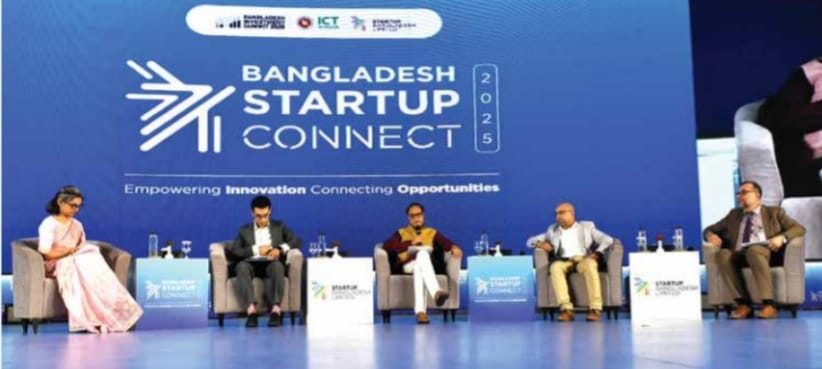The Bangladesh Investment Summit 2025, held from April 7 to 10 in Dhaka, signalled the country’s renewed focus on attracting foreign direct investment (FDI) and redefining its place in the global economy. Organized by the Bangladesh Investment Development Authority (BIDA) in association with the Bangladesh Economic Zones Authority (BEZA), the four-day summit brought together over 550 foreign investors and more than 2,300 participants from 50 countries.
From digital economy and renewable energy to agro-processing and pharmaceuticals, the summit showcased Bangladesh’s efforts to diversify its economic base, moving beyond the ready-made garments (RMG) sector that has long dominated the country’s export earnings. The event not only highlighted investment opportunities but also provided a platform to discuss persistent barriers that have discouraged global capital in the past.
A Bold Vision
Under the leadership of BIDA’s newly appointed Executive Chairman, Chowdhury Ashik Mahmud Bin Harun, the summit aimed to project a new image of Bangladesh as a dynamic, reform-driven investment destination. Harun, a seasoned policy strategist with an international background, articulated a clear ambition to position Bangladesh alongside investment-friendly economies such as Thailand, Vietnam, and Malaysia.

During the opening session, BIDA emphasized its commitment to streamlining approval processes, improving transparency, and promoting ease of doing business. In a significant policy shift, BEZA announced the cancellation of ten underperforming economic zones—five public and five private—in a bid to focus resources on more viable and performance-oriented zones.
The initial outcome of the summit included investment proposals amounting to over Tk 3,100 crore. Notably, Chinese textile giant Handa Industries confirmed a $150 million investment, marking one of the summit’s early successes. Discussions with companies from Singapore, Saudi Arabia, Germany, and the United States also indicated interest in long-term ventures in Bangladesh.
Opportunities Across Sectors
The summit featured a series of thematic sessions focused on priority sectors. These included digital financial services, green garments, middle-class housing, agro-processing, renewable energy, pharmaceuticals, and infrastructure development. The presence of global players like Starlink, which demonstrated its satellite internet service, drew attention to Bangladesh’s ambitions in the digital connectivity space.

The World Bank used the occasion to launch its latest “Bangladesh Country Private Sector Diagnostic,” which identified key sectors that could unlock significant job creation and economic growth. The report highlighted the untapped potential in paint and dyes, healthcare, and IT-enabled services. These findings aligned with the summit’s overarching theme: building a more diversified and innovation-driven economy.
Another area of focus was the development of private economic zones. BEZA officials shared updates on several new projects, including partnerships with South Korean and Japanese investors to establish high-tech parks and logistics hubs. These initiatives aim to strengthen supply chain linkages and foster technology transfer.
The Bangladesh Investment Summit 2025 drew the attention of major economic players from across the globe, with delegations from Japan, South Korea, the United Arab Emirates, the United Kingdom, and the United States expressing keen interest in deepening economic ties with Bangladesh. Japanese investors, long-standing development partners, highlighted potential investments in transport infrastructure and high-tech manufacturing.
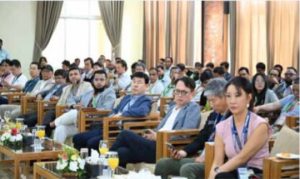
South Korean companies looked to expand their footprint in the electronics and textile sectors, while UAE-based conglomerates discussed possible ventures in renewable energy and port logistics. British firms focused on fintech and education technology, reflecting growing confidence in Bangladesh’s digital economy. Meanwhile, American investors, many of whom already have a presence in the energy and pharmaceuticals sectors, explored new opportunities in agro-processing and healthcare services.
Addressing the Challenges
While the summit succeeded in generating interest, it also became a forum for candid dialogue on structural impediments to investment. Several foreign delegates expressed concerns regarding policy inconsistency, bureaucratic complexity, and the lack of effective dispute resolution mechanisms.
One of the recurring criticisms was the unpredictability of regulatory frameworks. Investors cited instances of abrupt changes in tax policies and customs procedures, which create uncertainty and raise operational risks. In response, BIDA assured participants that a comprehensive review of existing policies was underway, with plans to introduce a single-window clearance system and digital investor services portal.
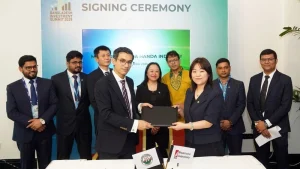
In addition to policy-related challenges, infrastructure deficits, and energy shortages were also highlighted as major constraints. Industry stakeholders called for faster implementation of planned power projects and improved port logistics to enhance competitiveness.
Nahiyan Rahman Rochi, Head of Business Development at BIDA, acknowledged these concerns, stating that the summit was not merely about signing deals but about laying the groundwork for a more stable and investor-friendly environment. He emphasized the importance of “follow-through” and indicated that BIDA would maintain active engagement with all summit participants.
Reforms and Expectations
One of the most discussed themes of the summit was the need for regulatory reforms and greater policy predictability. Several panel discussions featured local and international economists, business leaders, and development partners who stressed that without meaningful institutional reform, investment ambitions would remain unrealized.
Speakers called for improved inter-agency coordination, a stronger legal framework for public-private partnerships, and the simplification of business registration and taxation processes. There were also calls for greater transparency in public procurement and more autonomy for regulatory bodies.
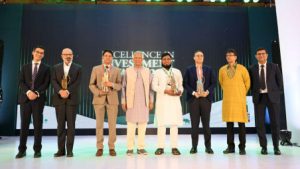
In response, BIDA pledged to initiate a set of reform measures, including:
- Establishment of a Digital Investor Dashboard.
- Revision of the National Industrial Policy to include emerging sectors.
- Introduction of investor grievance redress mechanisms.
- Pilot testing of sector-specific incentive schemes.
The urgency for these reforms is underscored by Bangladesh’s ambition to achieve upper middle-income status by 2031. To realize this goal, the country will need to sustain high levels of private investment and deepen integration into global value chains.
The Leadership Factor
The summit also placed a spotlight on the role of leadership in driving economic transformation. Chowdhury Ashik Mahmud Bin Harun emerged as a key figure in this narrative. His articulate delivery, data-driven approach, and emphasis on international best practices were well-received by participants. Mr. Ashik’s proactive communication and transparency have set a new tone for BIDA. Observers noted that the summit reflected a shift from promotional rhetoric to more grounded discussions on institutional reforms and private sector engagement.
Also, as a symbolic and heartfelt moment during the summit, Kihak Sung, chairman of Youngone Corporation and a trailblazer in Bangladesh’s RMG and textile sectors, was awarded honorary citizenship. Having first arrived in the country in the mid-1990s, Sung’s decades-long commitment to Bangladesh’s industrial landscape has made a lasting impact.
Under his leadership, Youngone not only helped pioneer export-oriented industrialization but also created thousands of jobs and contributed significantly to the economy. The recognition serves as a powerful example of how long-term, ethical investment can foster mutual growth. His journey from foreign investor to honorary citizen underscores the potential for meaningful partnerships between Bangladesh and the global business community.
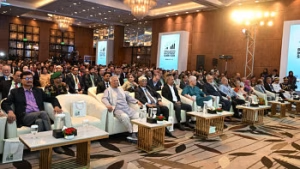
A Path Forward
The Bangladesh Investment Summit 2025 marks an important milestone in the country’s economic journey. By convening a diverse group of stakeholders and addressing both opportunities and bottlenecks, the summit laid the foundation for a more coordinated investment strategy.
Yet, the true measure of success will lie in implementation. Foreign investors will be watching closely to see whether the promises made at the summit are translated into concrete actions. The government’s ability to ensure policy continuity, institutional accountability, and investor protection will be critical in determining the country’s attractiveness as a long-term investment destination.
Bangladesh has shown that it can convene, converse, and commit. The next step is to deliver.
As the global economy continues to shift, and as investors look for resilient and cost-effective destinations, Bangladesh has the opportunity to present itself as a competitive alternative. If the reforms gain momentum, the country may indeed take a significant leap forward.
The world is now watching Bangladesh—not just for promises, but for progress.
Written by-
Nazinur Rahim
Research Analyst & Executive Editor, Diplomats World

